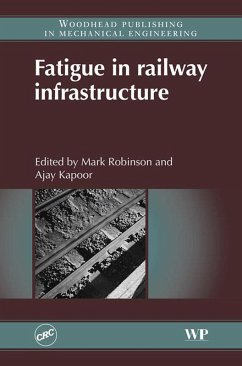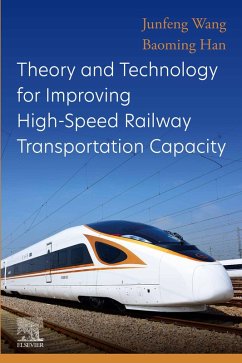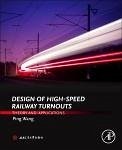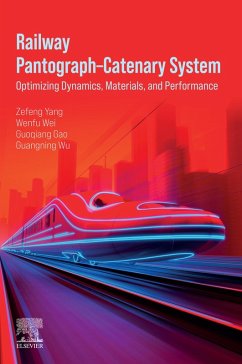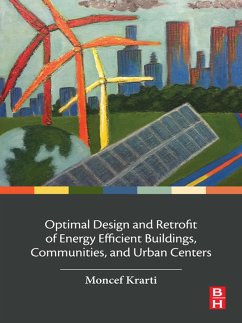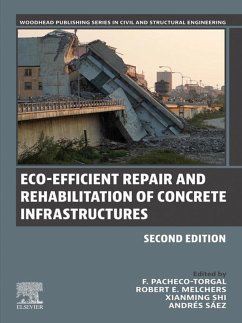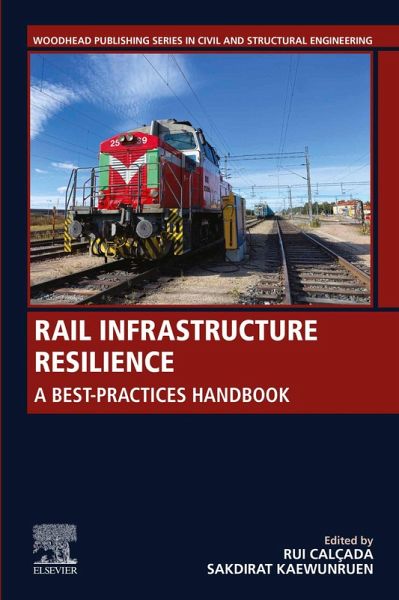
Rail Infrastructure Resilience (eBook, ePUB)
A Best-Practices Handbook
Redaktion: Calcada, Rui; Kaewunruen, Sakdirat
Versandkostenfrei!
Sofort per Download lieferbar
95,95 €
inkl. MwSt.
Weitere Ausgaben:

PAYBACK Punkte
48 °P sammeln!
Economic growth, security and sustainability across Europe are at risk due to ageing railway infrastructure systems. At present, the majority of such systems are aging and some have even reached their initial design lives. These issues align with a major challenge in civil engineering: how to restore and improve urban infrastructure and built environments. Policy, environmental and physical barriers must be addressed and overcome. The complex and interconnected nature of the problem means that there is a need for academia, industry, communities and governments to work collaboratively. The chal...
Economic growth, security and sustainability across Europe are at risk due to ageing railway infrastructure systems. At present, the majority of such systems are aging and some have even reached their initial design lives. These issues align with a major challenge in civil engineering: how to restore and improve urban infrastructure and built environments. Policy, environmental and physical barriers must be addressed and overcome. The complex and interconnected nature of the problem means that there is a need for academia, industry, communities and governments to work collaboratively. The challenges posed by extreme events from natural and man-made disasters are urgent.Rail Infrastructure Resilience: A Best-Practices Handbook presents developed improvement methods for rail infrastructure systems, toward resilience to extreme conditions. It shows how best to use new information in the engineering design, maintenance, construction and renewal of rail infrastructure resilience, through knowledge exchange and capability development. The book presents the outcome of a major European research project, known as the RISEN project. RISEN aimed to enhance knowledge creation and transfer using both international and intersectoral secondment mechanisms among European Advanced Rail Research Universities and SMEs, and Non-EU, leading rail universities, providing methodological approaches and practical tools for restoring and improving railway infrastructure systems for extreme events. Edited and written by members of this project, this book will be essential reading for researchers and practitioners hoping to find practical solutions to the challenges of rail infrastructure resilience. - Offers a best-practices handbook for rail infrastructure resilience from the leaders in the field - Paints a holistic picture of the rail transport system, showing that infrastructure maintenance intervention can be enhanced through advanced monitoring systems and resilience design - Presents rail infrastructure resilience and advanced condition monitoring, allowing a better understanding of the critical maintenance, renewal and retrofit needs of railways - Considers how academia, industry, communities and governments can work collaboratively in order to tackle aggregated problems in rail infrastructure resilience - Presents the findings from the RISEN project, the leading European project on enhancing knowledge creation and transfer of expertise on rail infrastructure resilience
Dieser Download kann aus rechtlichen Gründen nur mit Rechnungsadresse in A, B, BG, CY, CZ, D, DK, EW, E, FIN, F, GR, HR, H, IRL, I, LT, L, LR, M, NL, PL, P, R, S, SLO, SK ausgeliefert werden.






